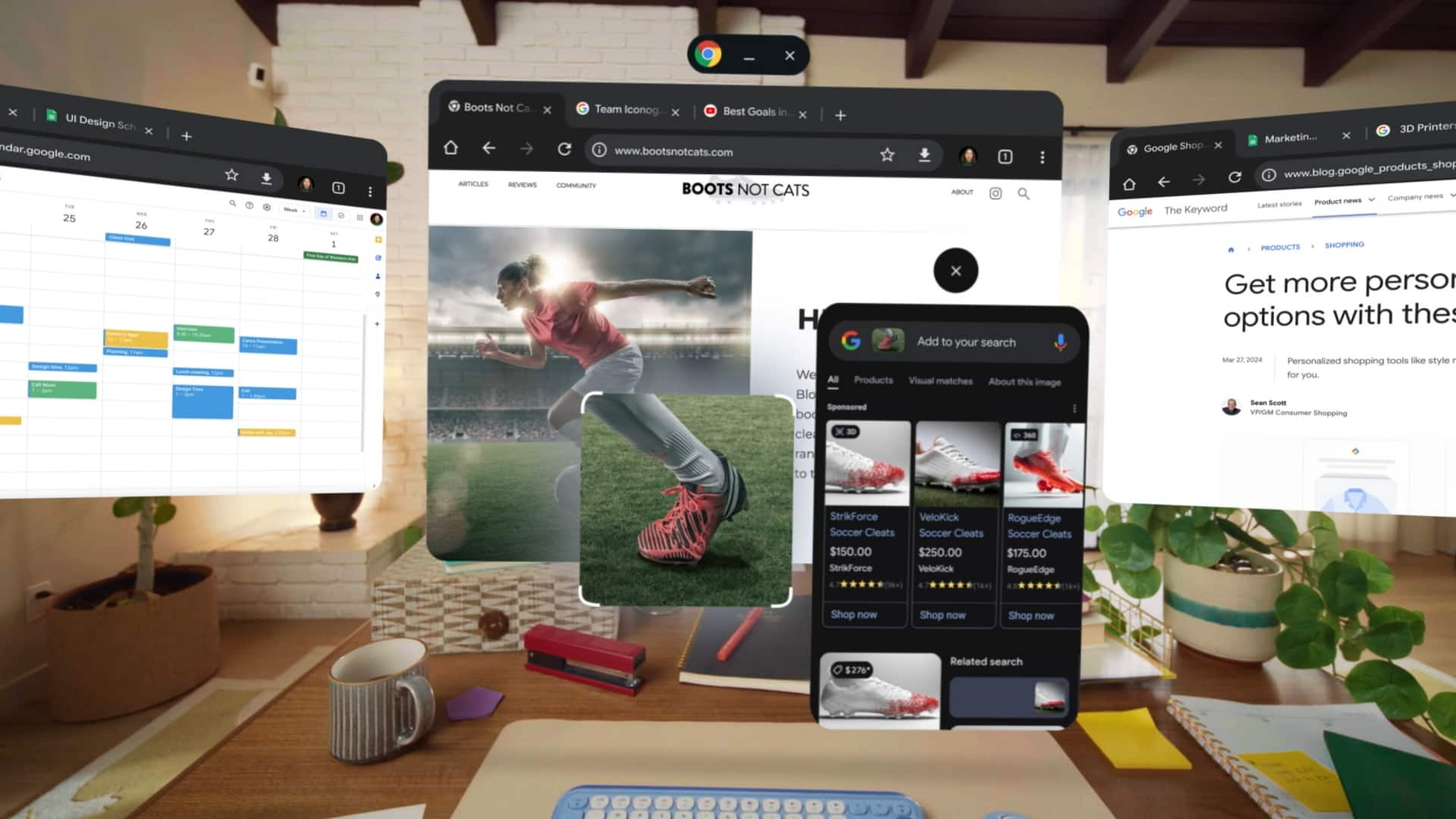
Google unveils Android XR—a new OS for headsets, smart glasses
What's the story
Google has announced Android XR, a new operating system designed for extended reality (XR) devices like headsets and smart glasses.
The move marks Google's renewed focus on the augmented reality space, which it had previously explored with the likes of Google Glass, Cardboard, and Daydream.
The tech giant is working with Samsung and other hardware manufacturers on this project.
Notably, Google's Gemini AI is the backbone of the Android XR experience, offering multimodal AI capabilities to enhance user interactions.
Features
Android XR to support immersive app versions
Android XR is designed to support immersive versions of Maps, Photos, and YouTube. It will also allow multiwindow multitasking in a new version of Chrome.
The platform will be compatible with existing mobile and tablet apps from Play Store.
The first developer preview of Android XR is now available and supports tools like ARCore, Jetpack Compose, Unity, and OpenXR.
An Android XR Emulator is also being integrated into Android Studio for developers to visualize their apps in virtual environments.
Collaboration
Samsung's Project Moohan to feature Android XR
Samsung's upcoming 'Project Moohan' headset will be the first consumer product to feature Android XR, supporting both VR and immersive content.
Project Moohan is a mix of Meta Quest 3 and Apple Vision Pro headsets but with an optional light seal for user comfort.
Companies like Lynx, Sony, and XReal are likely to launch more devices leveraging Qualcomm's XR solutions with Android XR.
Separately, Google also continues its partnership with Magic Leap on XR projects.
Demo
User experiences with Android XR
Victoria Song, senior reporter from The Verge, shared her experience during a tech demo.
Wearing what appeared to be "ordinary glasses," she stood in a room surrounded by Google and Samsung representatives. During the demo, she saw Spanish speaker's words translated into English subtitles, hovering mid-air, describing the scene in real-time.
In another demonstration using Moohan headset, Song tested its functionality by saying, "Take me to JYP Entertainment in Seoul." The device responded by opening Maps and displaying building's location.
Future plans
Google's strategy for the new platform
Google's VP of AR and XR, Shahram Izadi, detailed a three-pronged strategy for Android XR: engaging developers, leveraging Gemini's conversational experience, and promoting diverse device usage.
Izadi stressed that these devices are not designed to replace each other but to complement daily activities.
The announcement highlights Google's conviction that AI integration is the key to making headsets viable for consumers.
AI importance
Strong ecosystem of apps needed for success of smart glasses
Sameer Samat, who leads the Android ecosystem at Google, said "a digital assistant integrated with your XR experience is the killer app for the form factor."
While Android XR devices will be available for consumers in 2025, the current work is all about developers building experiences on the platform.
The idea is to create a strong ecosystem of apps and experiences for the average person, beyond early adopters.